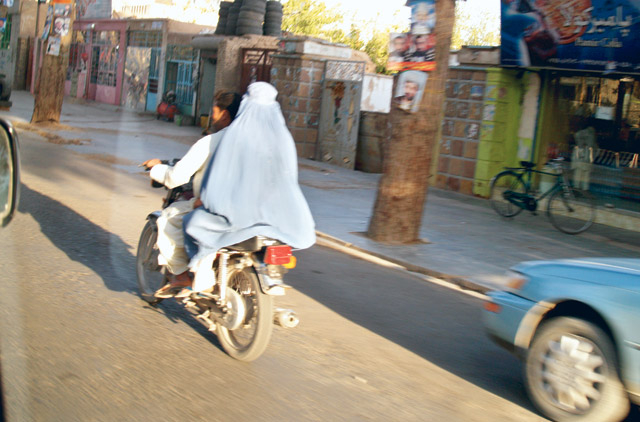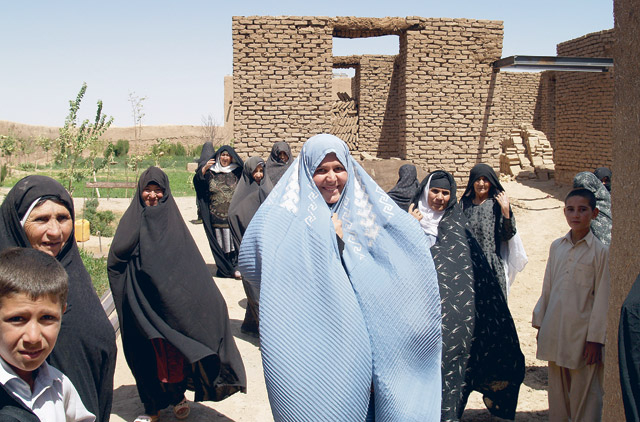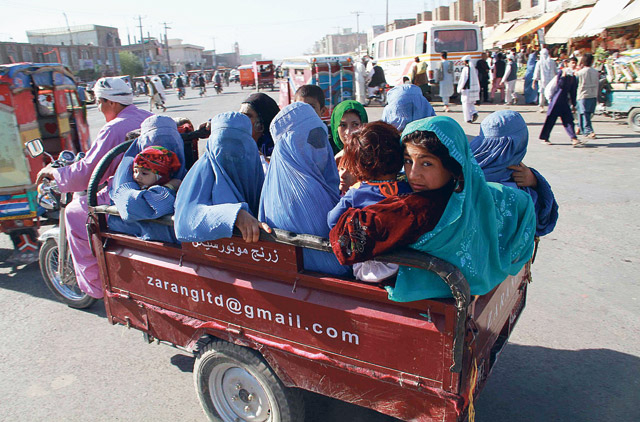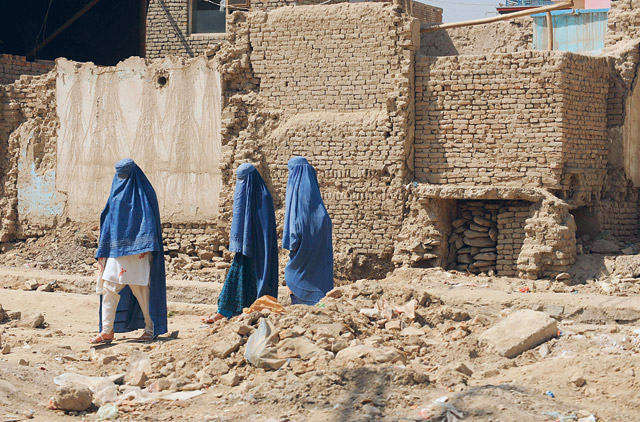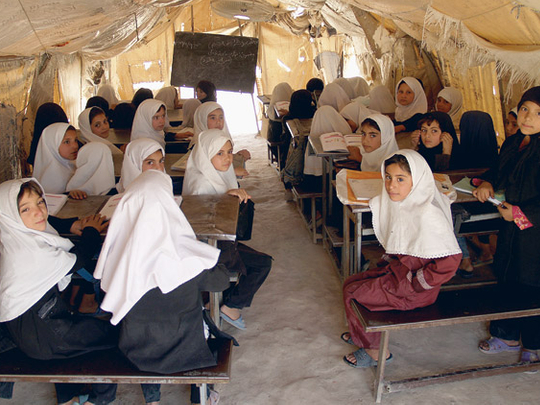
Kabul: Afghan women — like many across the world — have faced many issues in society, in their homes and within their own families. Low social status, lack of perceived community involvement, a lack of education and a lack of basic health care are all issues that Afghan women continue to face today.
However, human rights organisations working in the conflict-ridden country focus on the notion that men are the main problem in women's lives.
Video: Exploring Afghanistan
A people under scrutiny in Afghanistan
Blog: Journey to Afghanistan
"Women's problems are not only men. Human rights organisations only talk about women having a problem only between the men in their lives — it's not true. Because men are not a problem in Afghanistan," Sultana Waizi, gender trainer, Danish Committee for Aid to Afghan Refugees (Dacaar) told Gulf News from its Kabul headquarters.
"Right now they're talking about ‘men problem, men problem', there's no ‘men problem', really!" she continued.
Lack of opportunity
Women occupy a low position in Afghan society because of a lack of opportunity, she said. And one of the main problems is education.
"Education is very important in our lives," Waizi continued, adding that Afghan men also want women to enhance their education. In 2008, Unicef statistics estimated the female adult literacy rate (as a percentage of male) in Afghanistan to be 29 per cent. The literacy rate of 15-24 year-old men (2003-2007) was 49 per cent, compared to just 18 per cent for Afghan women of the same age.
"People need the support of their Government. If people are not supported by their government, how can we improve their education?" Waizi asked.
A wide range of health problems affect Afghan women.
"A lot of women die in childbirth," Waizi said, "especially in the provinces."
Women are sometimes refused access to doctors in Afghanistan because of cultural sensitivities where the doctor is a man. It is seen as shameful for a woman to be "seen" by a male doctor, particularly with medical matters relating to gynaecology, such as childbirth.
A 2010 Study of Gender Equity through the National Solidarity Programme's Community Development Councils, implemented by Dacaar, highlighted this problem. A woman from the Parwan province, interviewed for the study, explains in her own words: "In the beginning our husbands put a lot of restrictions on us but now they cooperate with us and advise me. When I was pregnant for the first time I almost died, but my father-in-law didn't let me go to the doctor and said, ‘It is not necessary that we give the doctor an opportunity to enjoy himself just to keep you alive.'"
According to Unicef statistics (2003-2008), 14 per cent of women had a skilled attendant at their child's delivery, while 13 per cent of women had an institutional delivery.


